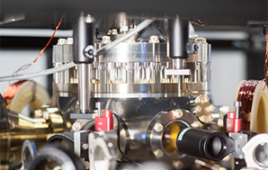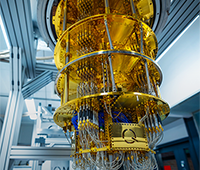Polymer Laboratories and Tulane University Collaborate in Online Polymerization
Polymer Laboratories has announced a key collaboration in online polymerization monitoring and control, designed to provide continuous, accurate characterization of polymers in reactors during the polymerization production process.
Polymer Laboratories has signed an Agreement with Tulane University, New Orleans, USA, to license and commercialize ACOMP — Automatic Continuous Online Monitoring of Polymerization reactions. Developed by Dr Wayne Reed, a professor in the Department of Physics at Tulane, ACOMP works on the principle of continuous withdrawal of polymer from a reactor which is mixed with solvent from a reservoir. The continuous stream of liquid is rapidly diluted sufficiently so that physical and chemical measurements can be made on the stream in virtually real time.
The advantage of continuous online monitoring is immediate notification of a change of state within the reactor. The ACOMP system, as commercialized by Polymer Laboratories, is a reliable, robust system. No special synchronization with the detectors is required, nor detector flush cycles or baseline stabilization between measurements. Data is gathered continuously, which often allows the resolution of kinetics and other important reaction features that are simply missed when data collection is interrupted by long dead times.
ACOMP can be predictive; using multiple detectors, continuous records can be manipulated by both arithmetic operations and derivative/integration operations to extract advanced characteristics of polymerizations such as weight average and viscosity average molecular weights (Mw and Mv) and rate and degree of conversion. Ultimately, ACOMP can provide online and real time control of the polymerization process and the polymer properties.
ACOMP systems are available from Polymer Laboratories under its PL-PMC Series of systems for online polymerization monitoring and control. It complements Polymer Laboratories’ high speed chromatographic technologies for polymer characterization in creating a spectrum of solutions for process monitoring and control.



